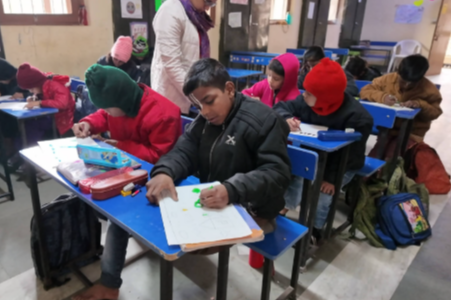How Cytion Is Setting New Standards in Cell Line Quality and Reliability

What You’ll Learn About MDA-MB-231 Cells and Cytion’s Quality Standards
- Why cell line authentication is critical for research validity
- How MDA-MB-231 cells contribute to breast cancer research advancements
- Common contamination issues that compromise research results
- Cytion’s comprehensive quality control protocols for cell line reliability
- The real-world impact of using authenticated MDA-MB-231 cell lines
Introduction: Why Cell Line Reliability Is Crucial in Modern Research
In today’s biomedical research world, using reliable cell lines is like building a house on solid ground. Scientists need cell lines they can trust completely, especially when their research could lead to new treatments for diseases like cancer. The demand for validated, contamination-free cell lines has never been higher as researchers try to make discoveries that can be repeated by others.
Key Takeaways
- Between 15-35% of cell lines contain contamination, and 18-36% are misidentified, undermining research validity
- MDA-MB-231 cells are essential for triple-negative breast cancer research due to their unique characteristics
- Cytion implements rigorous authentication protocols including STR profiling and comprehensive contamination screening
- Standardized protocols and master cell banking systems ensure batch-to-batch consistency
- High-quality cell lines directly impact breakthrough discoveries in cancer metastasis, drug development, and precision medicine
At Cytion, we’ve become a game-changer in cell line quality, solving the critical need for reliable cell models. We’re a trusted cell bank with over 800 carefully checked cell lines from both humans and animals. When researchers use our cells, they can be confident that their experiments are built on solid ground.
One of the most widely used cell lines in cancer research is the MDA-MB-231 cell line. These cells are super important for breast cancer research, helping scientists understand aggressive tumors and find new treatments. But these cells are only valuable when they’re authentic and pure – something that hasn’t always been guaranteed in the industry.
Using the wrong cells or contaminated cells doesn’t just waste time and money. It can lead to false results, retracted scientific papers, and delays in developing treatments that could save lives. In this article, we’ll explore how Cytion is setting new standards in cell line quality and reliability, with a special focus on our authenticated MDA-MB-231 cells and how they’re helping advance cancer research.
What Are MDA-MB-231 Cells and Why Are They Essential?
The MDA-MB-231 cell line is one of the most important tools in breast cancer research today. These cells originally came from a 51-year-old woman with metastatic breast cancer. What makes them especially valuable is that they’re “triple-negative” breast cancer cells. This means they don’t have three important receptors: estrogen receptor (ER), progesterone receptor (PR), and human epidermal growth factor receptor 2 (HER2).
Triple-negative breast cancer is one of the hardest types to treat because it doesn’t respond to hormone therapies or HER2-targeted treatments. That’s why MDA-MB-231 cells are perfect for studying this tough cancer type and finding new ways to treat patients who don’t have many options right now.
These cells are super useful for cancer research because they:
- Spread easily in lab tests, helping researchers study how cancer metastasizes
- Have a shape and behavior that matches aggressive cancer cells
- Contain mutations in important genes like KRAS, BRAF, and TP53, which are often found in human cancers
- Grow well in the lab, making them practical for many types of experiments
Scientists use MDA-MB-231 cells all the time in drug development. They help researchers screen potential cancer-fighting compounds, study drug resistance, and develop targeted therapies. Because these cells are so well-studied, scientists can compare their results with other labs around the world.
But here’s the important part: these cells are only valuable when they’re the real deal. If researchers accidentally use the wrong cells or contaminated cells, they might come to completely wrong conclusions. That’s why it’s so important to get these cells from trusted providers like Cytion, where we carefully check every cell line to make sure it’s authentic and clean.
Key Properties of MDA-MB-231 Cells
- Derived from human breast adenocarcinoma
- Triple-negative breast cancer phenotype (ER-/PR-/HER2-)
- Highly metastatic and invasive characteristics
- Resistant to hormonal therapies
- Contains mutations in KRAS, BRAF, and TP53 genes
- Adherent growth pattern in standard culture conditions
The Problem: Risks of Poor-Quality or Contaminated Cell Lines
The scientific community faces a big problem that many people don’t talk about: cell line mix-ups and contamination. Studies show that between 15-35% of cell lines being used today have some kind of contamination, while about 18-36% of cell lines are actually not what researchers think they are – they’ve been mixed up with other cell types.
When a cell line isn’t what scientists think it is, we call this “misidentification.” This happens when cells get cross-contaminated, labels get mixed up, or there are mistakes when sharing cells between labs. The consequences are serious – researchers might be studying completely different cells than they intended, making their findings useless and wasting precious time and resources.
One famous example is HeLa cells. These aggressive cancer cells have contaminated hundreds of supposedly distinct cell lines over the years. Many researchers thought they were working with cells from liver, intestine, or other tissues, when they were actually just using HeLa cells the whole time!
For MDA-MB-231 cells, misidentification could mean scientists are working with cells that don’t actually have the triple-negative characteristics that make this line so valuable. This undermines the usefulness of their research for actual breast cancer patients.
Even when cells are correctly identified, they can still face other problems. Over time and after many passages (when cells are split and regrown), they accumulate genetic and physical changes that can significantly alter their characteristics. This natural evolution process means cells at passage 50 may behave quite differently from the same line at passage 10.
The financial impact of these quality issues is huge. A 2015 study estimated that approximately $28 billion is spent annually on research that cannot be reproduced, with cell line problems being a major contributor. For individual labs, months or years of work may be invalidated when they discover they’ve been working with the wrong cells.
Beyond money, the scientific cost is even more concerning:
- Delays in developing effective cancer treatments
- Retracted publications and damaged scientific reputations
- Wasted patient samples and resources
- Wrong conclusions that lead future research in the wrong direction
- Loss of public trust in scientific research
These issues show why careful quality control and authentication aren’t just technical details but ethical necessities in modern biomedical research. At Cytion, we’ve developed comprehensive solutions to address these challenges, setting new standards for cell line quality that protect the integrity of scientific discovery.
Cytion’s Quality Commitment: Raising the Bar
At Cytion, we’ve built a comprehensive quality assurance system that sets new standards in the cell culture industry. Our approach to ensuring the integrity of cell lines like MDA-MB-231 combines cutting-edge technologies with strict protocols, creating a multi-layered verification process that addresses the key challenges facing researchers.
Central to our quality commitment is a robust authentication process that verifies the genetic identity of every cell line in our collection. For human cell lines like MDA-MB-231, we use Short Tandem Repeat (STR) profiling – the gold standard for human cell authentication. This technique analyzes specific repeated DNA sequences that create a unique genetic “fingerprint” for each cell line.
Our authentication process includes:
- Analysis of 16+ genetic markers to create a comprehensive STR profile
- Comparison against reference databases including ATCC, DSMZ, and JCRB
- Verification against the original source material when available
- Regular re-authentication throughout the cell line lifecycle
- Detailed authentication certificates provided with each cell line
For MDA-MB-231 cells specifically, our authentication confirms the unique genetic signature that distinguishes this triple-negative breast cancer line from other breast cancer models or potentially contaminating cell types. This gives researchers confidence that they are working with genuine MDA-MB-231 cells that will behave as expected.
Cytion’s Four-Pillar Quality Assurance System
🧬
DNA Authentication
STR profiling to verify genetic identity against reference databases
🔍
Contamination Screening
Comprehensive testing for mycoplasma, bacteria, fungi and viruses
📊
Functional Validation
Verification of key cellular characteristics and behaviors
📝
Documentation & Traceability
Complete records from source to distribution with batch-specific data
Contamination can ruin research results even when the cell line’s identity is correct. We implement comprehensive screening protocols to detect and eliminate all common contaminants:
Mycoplasma Testing: We use multiple detection methods including PCR-based assays and direct culture techniques to identify these sneaky bacteria-like organisms that can alter cellular behavior without visible signs.
Bacterial and Fungal Screening: Our cells undergo rigorous testing for bacterial and fungal contaminants using both traditional culture methods and molecular detection techniques.
Viral Screening: Advanced PCR-based methods detect potential viral contaminants, particularly important for human-derived cell lines like MDA-MB-231.
Every batch of MDA-MB-231 cells at Cytion comes with comprehensive documentation that ensures complete traceability. This includes detailed passage history, complete authentication and contamination testing results, growth characteristics, culture conditions, and batch-specific quality control results. This level of documentation helps researchers make informed decisions and provides critical information for troubleshooting.
While authentication confirms genetic identity, we recognize that functional characteristics are equally important. Our MDA-MB-231 cell line undergoes additional testing to verify key properties like triple-negative status, growth rate, morphology, invasion potential, key genetic mutations, and response to standard control compounds.
By implementing these comprehensive quality measures, Cytion provides researchers with cell lines they can trust completely. Our MDA-MB-231 cells at $250.00 represent an investment in research integrity – eliminating the far greater costs of working with compromised cell lines.
How Cytion Ensures Reproducibility and Reliability
Beyond our initial quality control checks, Cytion has implemented systematic approaches to ensure long-term reproducibility and reliability across all our cell lines, especially high-demand models like MDA-MB-231. These practices address the common challenges that make experiments inconsistent and hard to reproduce.
One major source of experimental inconsistency across labs is variation in how cells are grown. To address this, we’ve developed standardized protocols for each cell line in our collection, optimized through extensive testing. For MDA-MB-231 cells, our standardized approach includes specific media formulations, optimal seeding densities, validated subculturing schedules, and detailed protocols for specialized applications. These standardized protocols come with each cell line purchase and are regularly updated based on customer feedback and advances in cell culture technology.
Cytion’s MDA-MB-231 Quality Control Parameters
| Parameter | Specification | Testing Method | Status |
| STR Profile | Match to reference | 16-marker STR analysis | Required |
| Mycoplasma | Negative | PCR and culture methods | Required |
| Bacterial/Fungal | Negative | Sterility testing | Required |
| Viability Post-Thaw | >85% | Trypan blue exclusion | Required |
| Doubling Time | 20-24 hours | Growth curve analysis | Monitored |
| Morphology | Spindle-shaped, adherent | Phase contrast microscopy | Monitored |
| Triple-Negative Status | ER-/PR-/HER2- | Immunofluorescence | Verified |
| p53 Mutation | Present | Targeted sequencing | Verified |
Batch-to-batch variation can significantly impact experimental outcomes, particularly in sensitive applications like drug screening or gene expression studies. We’ve implemented several strategies to ensure exceptional consistency between batches of our MDA-MB-231 cells:
Master Cell Banking System: We maintain low-passage master cell banks from authenticated source material, which are used to generate working cell banks under strictly controlled conditions. This hierarchical banking system ensures all distributed cells are within a narrow passage range and have undergone minimal population doublings.
Standardized Expansion Process: All batches undergo identical expansion processes with defined parameters for cell density, media change schedules, environmental conditions, and harvesting methods.
Comparative Quality Control: Each new batch is directly compared to previous batches using growth curve analysis, morphological assessment, key marker expression, and functional assays relevant to the cell type.
We believe that transparency in quality assurance builds trust and helps researchers make informed decisions. Our commitment to transparency includes comprehensive Certificates of Analysis with each vial, accessible information about our quality management processes, and responsive technical support from our team of cell culture specialists.
The quality and consistency of the cell models we use directly impacts our ability to develop effective cancer therapies. Since implementing Cytion’s MDA-MB-231 cells in our drug discovery pipeline, we’ve seen marked improvements in assay reproducibility and greater confidence in our screening results.
Dr. Sarah Blackwell, Director of Oncology Research, BioInnovate Therapeutics
The reliability measures we implement have real benefits for researchers using our MDA-MB-231 cells:
- Reduced experimental variability with more consistent results
- Improved reproducibility between different laboratories
- Better potential for translating lab findings to clinical applications
- Less time wasted troubleshooting cell-related issues
Through these comprehensive approaches to reproducibility and reliability, Cytion is helping to establish new standards for cell line quality that benefit the entire scientific community and speed up discoveries in cancer research and beyond.
Real-World Impact: Research That Depends on MDA-MB-231
The impact of high-quality, authenticated MDA-MB-231 cells goes far beyond the laboratory bench. These cells have helped scientists make groundbreaking discoveries that are shaping our understanding of breast cancer and driving the development of new treatments. The reliability of these cellular models directly influences the validity and translational potential of this critical research.
Triple-negative breast cancer’s aggressive spreading nature makes it particularly deadly. Researchers using well-characterized MDA-MB-231 cells have made significant contributions to understanding how cancer spreads:
- Identifying key signaling pathways that drive cancer metastasis
- Discovering environmental factors that help cancer cells invade
- Understanding how exosomes prepare distant sites for cancer spread
- Characterizing circulating tumor cell properties and survival mechanisms
A landmark 2018 study published in Nature used authenticated MDA-MB-231 cells to identify a previously unknown mechanism by which breast cancer cells evade the immune system during metastasis. This discovery opened new avenues for immunotherapy treatments specifically targeting metastatic cells – a finding that depended entirely on the researchers’ confidence in their cellular model.
The pharmaceutical industry relies heavily on validated cell models for identifying and optimizing potential therapeutic compounds. MDA-MB-231 cells have been instrumental in numerous drug development programs:
As cancer treatment moves toward precision medicine, well-characterized cellular models become even more crucial. MDA-MB-231 cells serve as an important reference point in developing personalized approaches:
- Comparison baseline for patient-derived xenografts and organoids
- Platform for testing targeted therapy combinations
- Model for developing biomarkers of treatment response
- System for understanding heterogeneity in triple-negative breast cancers





